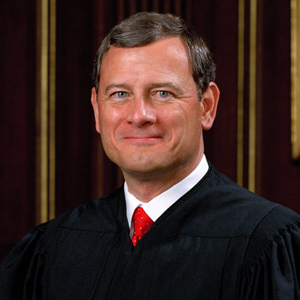Roberts says it's not difficult being down one Justice, but some are dubious

Chief Justice of John Roberts.
Although the U.S. Supreme Court currently only has eight justices who are often split ideologically, reaching court consensus is not more complicated than it was prior to Justice Anontin Scalia’s death in February, Chief Justice John G. Roberts recently said.
The question was posed to him at a judges meeting by William J. Riley, chief judge of the St. Louis-based 8th U.S. Court of Appeals, the Washington Post reports.
It appeared that Roberts did not want to say anything that would help Democrats demand a Senate vote for Merrick Garland, the president’s Supreme Court nominee, according to the article, or appear to support Republicans who say the appointment should go to the next president.
Previously Roberts has expressed concerns that political polarization could make the public think the court is influenced by partisan politics.
‘It’s a great loss, the loss of Justice Scalia, and there are reasons most appellate courts have an odd number of judges,” Roberts said in response to Riley’s question. “But the process is pretty much what it has been.”
Roberts mentioned that most U.S. Supreme Court opinions are not 5-4 decisions. The article notes that following Scalia’s death, the court has said it was deadlocked on several cases. Also, many landmark opinions have been decided 5 to 4. And court experts say that a smaller number of controversial cases are being granted cert because the court does not want to take cases for which it cannot provide definitive answers, the Post said.



